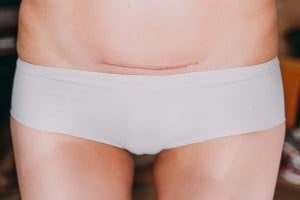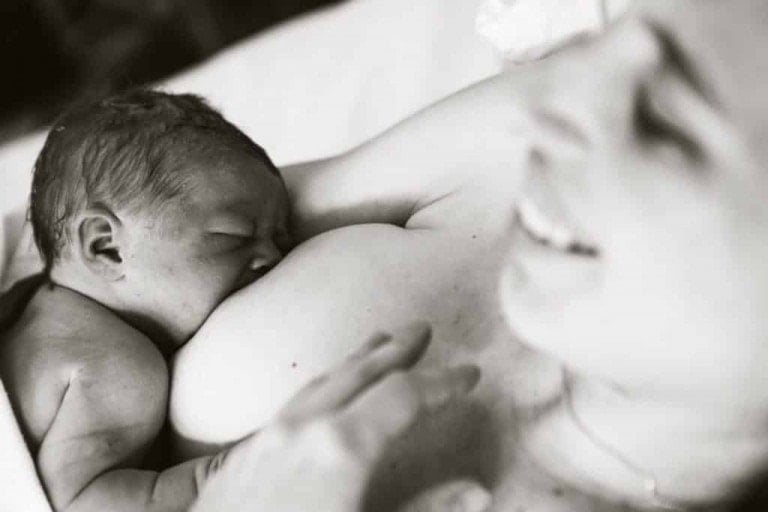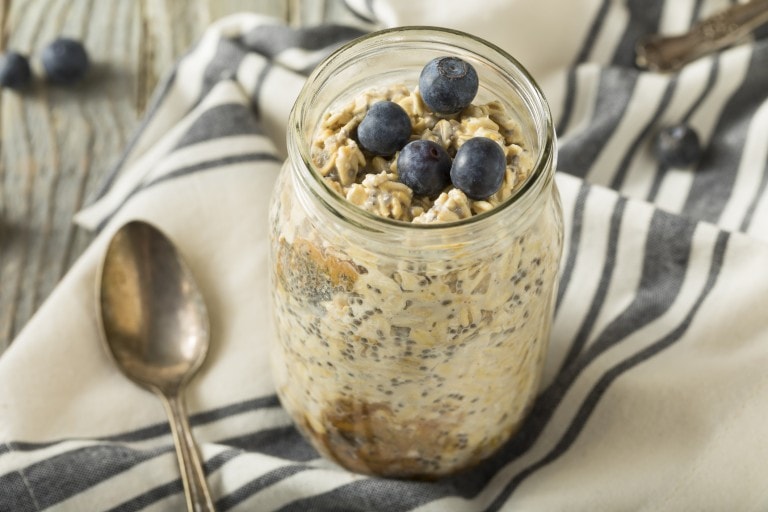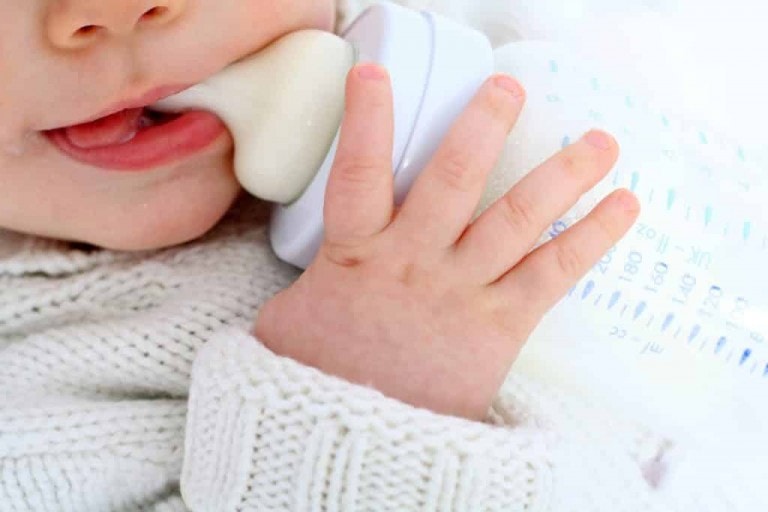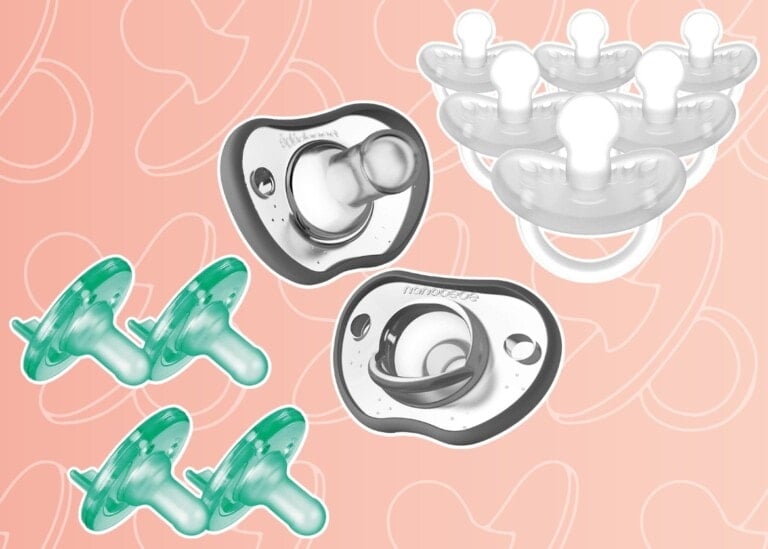When it comes time to start your training or diet plan postpartum, it’s common for moms to worry about affecting their breastmilk supply. I can relate. As a new mom committed to breastfeeding both of my sons as long as possible, I promised myself I would stop my postpartum workouts immediately if I noticed decreased breastmilk production. To me, losing the baby weight just wasn’t as important as having a healthy child. The good news is that, when done correctly, you can burn fat without dropping your breastmilk supply. Research shows that most of us would have to do excessive dieting and caloric restriction to affect our supply. Ongoing milk supply maintenance is about supply and demand, so how much milk is being removed by your baby . . . not your diet.
What You Need To Know About Your Breastmilk Supply
A breastfeeding mom needs an average of 300-500 extra calories daily to maintain a healthy milk supply.4,5 However, you might find that while you’re super hungry for the first few months, things might calm down after a while, and you can eat the same amount of calories pre-baby. Also, if you have higher storage of fat cells, you may not need to eat more than usual, even right after your baby is born. Don’t feel like you have to calorie count for your supply to stay okay! Just keep breastfeeding your baby on demand and eating when you’re hungry.
By combining proper diet and exercise to burn extra calories, a healthy, well-nourished breastfeeding mom can safely lose up to 1 pound per week without impacting her breastmilk supply.1 One study even suggests that short-term weight loss of up to 2.2 pounds per week won’t negatively affect milk supply or the baby’s well-being. In this particular study, the moms dieted for 11 days.2 So don’t stress! You can exercise, lose weight, and still make milk for your baby.
How To Burn Fat Without Dropping Your Breastmilk Supply
As breastfeeding moms, we aim to give our babies nutrients to promote their growth and health. Here are eight ways to burn fat without dropping your breastmilk supply:
1. Drink Up!
Breastfeeding moms need to stay hydrated. Drinking water can help reduce your appetite, causing you to burn more calories, so be sure to drink frequently and drink more if your urine appears dark yellow.6,7 I like to have a glass of water nearby when I breastfeed, and I carry around water with me throughout the day.
2. Eat Enough
As mentioned, most moms need an additional 300 to 500 calories a day to keep up their energy and milk supply.4,5 You don’t need to count calories (and what busy mom wants to or has time for that anyway?!). Just ensure you’re fueling yourself and monitoring your hunger, energy, and cravings. Remember that not everyone will need these extra calories, though!8 Especially those who already have a high storage of fat cells.
3. Eat Real Food
Rather than eating processed foods, opt for a variety of whole foods, focusing on lean protein and plenty of fruits and vegetables.4 (Note: wash your fruits and vegetables to reduce exposure to pesticide residue.9) Often, less processed foods have a higher thermogenic effect, so you scorch calories as you chew!3
4. Try a Variety of Different Foods
You’re more likely to stick to your fat-burning nutrition plan when incorporating various foods into your diet. Additionally, changing the foods you eat will change the flavor of your breastmilk, exposing your baby to different tastes, which might help them more easily accept solid foods later on.7 I focus on eating an assortment of various flavors, herbs, spices, and foods . . . And now that we’re introducing our son to solid foods, he’s done fabulously! No picky eaters here!
5. Take a Prenatal Vitamin if Needed
If you’re unsure that you’re getting all the proper vitamins and minerals while breastfeeding, you may consider continuing to take a daily prenatal vitamin until you wean your baby.4,7 In addition to keeping your baby healthy, the chemical reactions that burn fat require the help of specific vitamins and other nutrients, so providing ample amounts of those key nutrients may increase your fat burning.10
6. Limit Caffeine
I love my morning coffee as much as the next mom, but drinking too much caffeine isn’t a good idea. According to the Mayo Clinic, breastfeeding moms should only drink 2 to 3 cups (16 to 24 ounces) of caffeinated drinks daily. Most women can drink up to 3 cups daily without affecting their babies. For some, though, caffeine in your breastmilk might agitate your baby or affect their sleep (which is something NO breastfeeding momma wants!).7
From a fat-burning perspective, sleep is crucial.11 According to a Psychology Today article, when you sleep less, your body tries to “meet the increased metabolic needs of longer waking hours by shifting into a lower gear.” In other words, you’ll burn fewer calories and less fat, so limiting your caffeine intake can help with both sleep and fat-burning.12
7. Understand Alcohol
If you choose to drink alcohol, avoid breastfeeding for a while after having an alcoholic drink.13 The Mayo Clinic says that it typically takes two to three hours for 12 ounces of 5% beer, 5 ounces of 11% wine, or 1.5 ounces of 40% liquor, depending on your body weight and whether you’ve had food.7 For optimal fat burning, however, it’s best to avoid alcohol altogether. The extra calories from alcohol consumption are likely to stall fat loss.14 So, cut the calories and look for calorie-free options like flavored or sparkling waters.
8. Watch for Allergies
Certain foods or drinks in your diet could cause your baby to become irritable or have an allergic reaction.15 Consult your baby’s doctor if your baby becomes fussy or develops a rash, diarrhea, or congestion soon after nursing. These signs could indicate a food allergy.16,17 Consider eliminating dairy products or other allergenic foods or ingredients, such as cow’s milk, eggs, peanuts, wheat, soy, or fish.16 If your baby is showing signs of reflux or “colic,” it’s important to consider the possibility of a food allergy or intolerance as the underlying cause.18
Remember, there’s no need to go on a “special diet” while you’re breastfeeding. There are several ways to burn fat without dropping your breastmilk supply. You and your baby will reap the rewards if you’re consistent with postpartum exercise and focusing on making healthy nutrition choices.



















